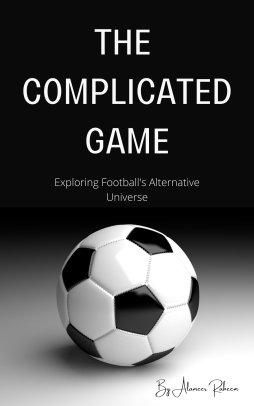The Age Advantage in Success: The Myth of Hard Work and the Rise of a New Perspective

For the longest time, we’ve been told that success follows a simple equation: hard work leads to achievement. Whether in school, business, or sports, the idea has always been that if you put in enough effort, you’ll eventually get what you deserve.
This belief is comforting because it suggests that we have full control over our futures. It reassures us that those who succeed do so because they’ve worked harder than everyone else. But what if that’s not entirely true? What if success isn’t just about effort, but also about circumstances beyond our control?
A Shift in Thinking
In recent years, researchers have challenged the idea that effort alone determines success. One of the most famous critics is Malcolm Gladwell, a Canadian journalist and author who turned the conversation upside down in 2008 with his book Outliers.
Gladwell’s central argument is that hard work matters, but hidden advantages matter even more.
His book explores why some people rise to the top while others, despite having talent and dedication, never quite make it. He dives into the unseen forces that shape success—factors like family background, access to opportunities, and even birth month.
At first, this might sound unfair, but Gladwell didn’t just come up with this theory—he backed it with data. He analyzed patterns of success across different fields, from tech entrepreneurs to professional athletes, and found that luck and timing often play a bigger role than people realize.
Football and the Illusion of Meritocracy
If there’s one sport that seems to embody the classic “work hard, win big” mentality, it’s football. The game is filled with inspiring stories of underdogs—players who came from tough backgrounds and made it to the top through sheer determination and talent.
Cristiano Ronaldo grew up in a poor neighborhood in Madeira. Sadio Mané played barefoot in Senegal. Many of the sport’s biggest stars come from humble beginnings, reinforcing the belief that football is the ultimate meritocracy. In theory, anyone with skill and dedication can make it.
But if we apply Gladwell’s research, we start to see cracks in this idea. Because in reality, not everyone starts from the same place.
Even in football, certain players unknowingly receive a hidden advantage—one that has nothing to do with their talent or work ethic. And one of the biggest factors?
The month they were born.
The Moment the Idea Was Challenged
For years, football clubs, youth academies, and national teams operated under the assumption that talent would always rise to the top. The best players would naturally emerge, and the sport would remain a pure competition of skill and dedication.
But then, studies began to reveal a strange pattern—one that couldn’t be explained by talent alone.
Coaches, scouts, and analysts noticed that a disproportionate number of professional footballers were born in the first few months of the year. At first, this seemed like a coincidence. But when researchers looked deeper, they realized this was no accident—it was part of a larger, systemic issue in the way young players are selected and developed.
This phenomenon, known as the Relative Age Effect, was about to change how we understand talent identification in football.
How can something as random as a birthdate influence who succeeds and who doesn’t?
That’s exactly what we’ll explore in Part 2.
In Conclusion
The idea that success is purely based on hard work has been a dominant belief for decades, but research suggests that hidden advantages play a crucial role. In football, as in life, factors beyond an individual’s control—such as birth month—can create unnoticed biases that shape careers from an early age. While effort and dedication remain essential, understanding these hidden influences helps us see that success isn’t always as straightforward as it seems. In Part 2, we’ll dive deeper into how the Relative Age Effect affects young athletes and why it gives some players an unexpected head start.
Sources
Outliers Full Book Summary
Do Guys Keep Growing Until Age 25?
Relative Age Effect Among the Best Norwegian Track and Field Athletes of All Time: Comparisons of Explosive and Endurance Events
Relative Age Effect
How important is the birth date in football players’ sports career?
Malcolm Gladwell: Full Exclusive Interview - No Small Endeavor
Are European Soccer Players Worth More If They Are Born Early in the Year? Relative Age Effect on Player Market Value
Birth Advantages in Male Italian Soccer: How They Influence Players Youth Career and Their Future Career Status
Maturity-Associated Polygenic Profiles of under 12–16-Compared to under 17–23-Year-Old Male English Academy Football Players
How a footballer’s birth month can affect their chances of reaching the top
Study reveals birth month impact on soccer careers
Relative age effect:a serious problem in football
The relative age effect is larger in Italian soccer top-level youth categories and smaller in Serie A
Matthew Effect | Definition & Application
Belgium are much more than a golden generation and it is not luck
The curious tale of the football international nobody ever heard of (because he was born in the wrong month)
“Is early reliable TID possible? No. Is it necessary? No, it is not.” - Prof Dr Arne Güllich